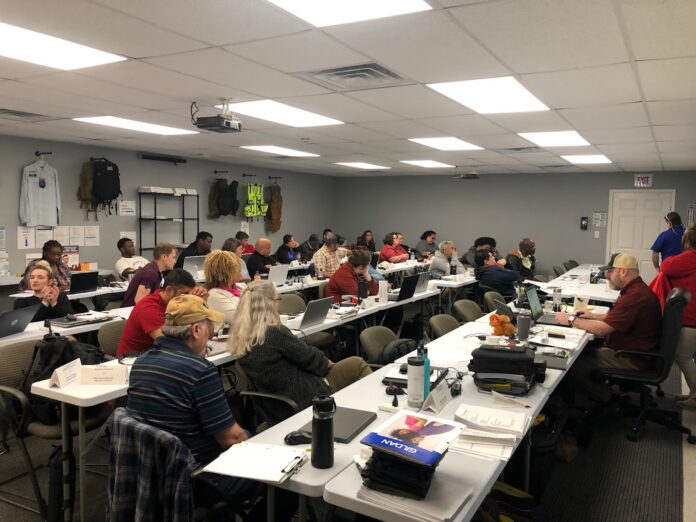In the ever-evolving world of insurance, the role of an insurance adjuster is paramount. These professionals play a crucial role in assessing and processing insurance claims, ensuring fair settlements, and maintaining the trust of policyholders. To excel in this field, obtaining an insurance adjuster certification is not only a wise choice but often a requirement. In this comprehensive guide, we will explore the ins and outs of insurance adjuster certification and licensing, offering you a clear roadmap to success.
What is Insurance Adjuster Certification?
Before diving into the specifics, let’s clarify what insurance adjuster certification entails. An insurance adjuster certification is a formal recognition that an individual has met the necessary educational and professional requirements to work as an insurance adjuster. It is essentially a badge of expertise and competence in the insurance industry, assuring clients, employers, and regulators that you are qualified for the job.
Why Is Certification Necessary?
- Legal Requirement: In many states, insurance adjuster certification is a legal requirement. To legally practice as an adjuster, you must be certified by your state’s insurance regulatory authority. This ensures that adjusters adhere to industry standards and ethics, protecting both insurers and policyholders.
- Competitive Advantage: In a highly competitive job market, certification sets you apart from other candidates. Employers often prefer certified adjusters because they are seen as more knowledgeable and reliable.
- Improved Earning Potential: Certified insurance adjusters tend to earn higher salaries than their non-certified counterparts. Certification demonstrates your commitment to your profession, making you a more valuable asset to your employer.
Understanding Insurance Adjuster Licensing
Insurance adjuster licensing is closely related to certification, but they are not the same. While certification establishes your expertise, licensing grants you legal permission to work as an insurance adjuster in a specific jurisdiction.
Key Points about Licensing:
- State-Specific: Insurance adjuster licensing is typically state-specific. Each state has its own licensing requirements and regulations. To work across multiple states, you may need to obtain licenses in each one.
- Pre-License Education: Most states require you to complete pre-license education courses. These courses cover essential topics like insurance law, ethics, and claims handling practices.
- Licensing Exams: After completing the required education, you’ll need to pass a licensing exam. These exams assess your knowledge of insurance regulations and your ability to apply them in real-world scenarios.
- Continuing Education: Many states also mandate continuing education to maintain your license. This ensures that adjusters stay up-to-date with industry changes and best practices.
Steps to Obtaining Insurance Adjuster Certification and Licensing
Now that we’ve covered the basics, let’s walk through the steps to becoming a certified and licensed insurance adjuster.
Step 1: Determine Your State Requirements
Start by researching the specific certification and licensing requirements in your state. These requirements can vary significantly, so understanding what is expected of you is crucial.
Step 2: Enroll in Pre-License Education
Once you understand your state’s requirements, enroll in a pre-license education program approved by your state’s insurance department. These programs are designed to prepare you for the licensing exam.
Step 3: Pass the Licensing Exam
Study diligently and take the licensing exam. Be sure to review the exam content outline provided by your state’s insurance department to know what to expect.
Step 4: Apply for Certification
After passing the licensing exam, you can apply for insurance adjuster certification. This often involves submitting your exam results, educational transcripts, and any required fees to your state’s regulatory authority.
Step 5: Complete Continuing Education (if required)
If your state mandates continuing education, make sure to fulfill those requirements to maintain your certification and licensing.
The Benefits of Insurance Adjuster Certification and Licensing
Now that you understand the process, let’s explore the tangible benefits of obtaining insurance adjuster certification and licensing.
1. Credibility and Trust
Certification and licensing enhance your credibility as an insurance adjuster. Clients and employers are more likely to trust your expertise, knowing that you have met rigorous standards and passed a licensing exam.
2. Legal Compliance
By obtaining the necessary licenses and certifications, you ensure that you are working within the bounds of the law. This not only protects you from legal issues but also reassures your clients and employers.
3. Career Advancement
Certified and licensed adjusters often have more opportunities for career advancement. Whether you aim for a leadership role or specialized niche within the industry, these credentials can open doors.
4. Increased Earning Potential
As mentioned earlier, certified adjusters tend to earn higher salaries. Moreover, you may be eligible for bonuses and incentives that non-certified adjusters miss out on.
Conclusion
In the world of insurance, an insurance adjuster certification and licensing are your keys to success. They not only demonstrate your expertise but also ensure legal compliance and open doors to a world of career opportunities. So, if you’re considering a career as an insurance adjuster or seeking to advance in your current role, take the necessary steps to become certified and licensed. It’s a decision that will undoubtedly pay dividends in your professional journey. Don’t wait—get started on your path to insurance adjuster excellence today.
In the ever-evolving world of insurance, the role of an insurance adjuster is paramount. These professionals play a crucial role in assessing and processing insurance claims, ensuring fair settlements, and maintaining the trust of policyholders. To excel in this field, obtaining an insurance adjuster certification is not only a wise choice but often a requirement. In this comprehensive guide, we will explore the ins and outs of insurance adjuster certification and licensing, offering you a clear roadmap to success.

